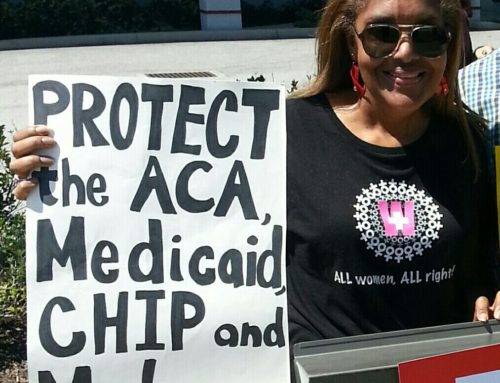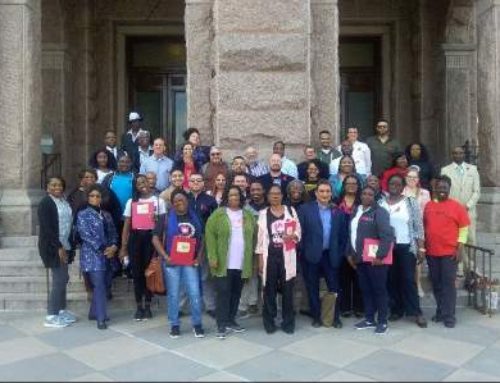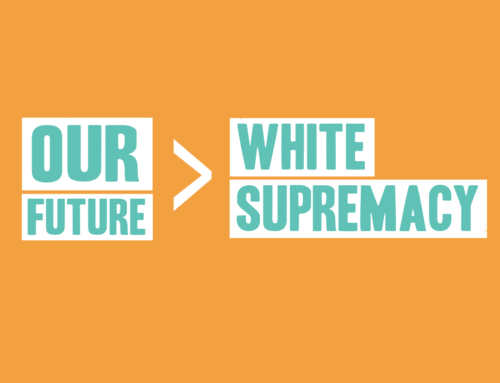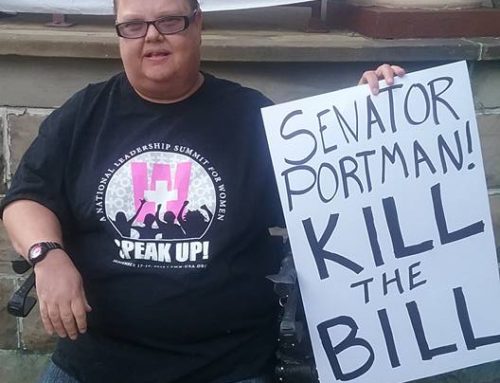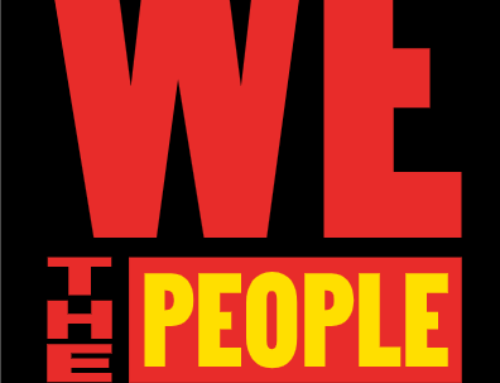The new Medicaid “block grant” option will lower quality of and access to care for the most vulnerable
January 30, 2020: Whether it’s routine like strep throat or scary like cancer, illness reminds us that at our core, we’re all human. Everyone wants proven treatments without fearing we’ll go bankrupt to get them. As people living with HIV, we know all too well that access to affordable health care is critical to our ability to live, work, and take care of our loved ones.
That’s why the Trump administration’s relentless attacks on health care have mobilized so many of us to hit the streets, the offices of our members of Congress, and even Capitol Hill over the past three years. Through our no-holds-barred activism and persistent advocacy, we beat back repeal of the Affordable Care Act—three times. And Congress backed off.
Today, the administration took matters into its own hands. President Trump’s Centers for Medicare and Medicaid Services (CMS) released new guidance for states that will allow them to radically change health care access and quality for low-income people. While the details are intentionally complicated, the effect is not: many of the country’s most vulnerable people, including many living with HIV, will lose access to care, pay more for care, or get a lower quality of care.
Many of us, like millions of low-income Americans, rely on or have relied on Medicaid to get the care we need to lead our best lives—or even just to stay alive. Medicaid is a state and federal partnership. The state covers some of the costs, and the federal government chips in a share at a matching rate. If the need for funds goes up in a state, so does federal funding. This way the state can cover everyone who is eligible, even if an emergency occurs that raises the number of people who are eligible or the costs (such as an economic downturn or natural disasters). Under CMS’s new guidance, states that apply for the waiver will receive a fixed amount of federal funding for their Medicaid program. When the state goes over that amount, it will have to cover the additional costs itself or cut back on coverage. By choosing to receive that finite amount of funding—known as a “block grant”—states will be allowed to make changes to eligibility requirements and services funded without needing federal approval. (Read more about “block grant” funding and its many problems here.)
The change will result in cut funding, loss of coverage and benefits, limited access to public health care, and will make it harder for states to respond to health emergencies or unexpected costs.
We know who this change will hurt: our people. Medicaid is the single largest source of health care coverage for people living with HIV, and women are the majority of people on Medicaid in the U.S. The program serves many LGBTQ people and Black and non-Black people of color, who are disproportionately likely to rely on Medicaid for essential health care access.
This administration—despite its supposed commitment to ending the HIV epidemic–is using all available avenues to cut access to health care for those who need it most – even if that means running around Congress to do so.



